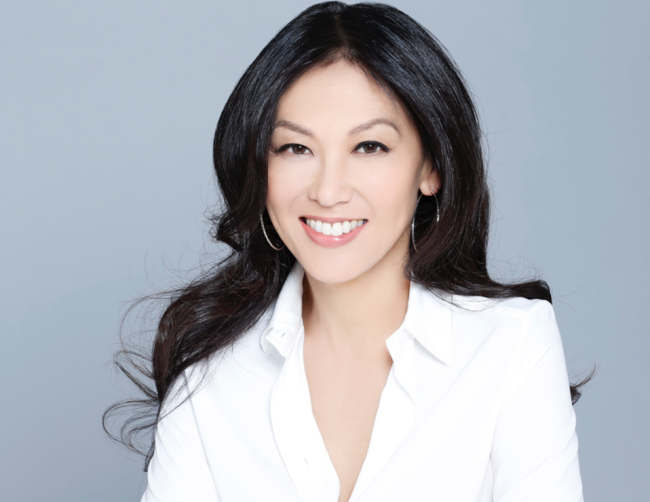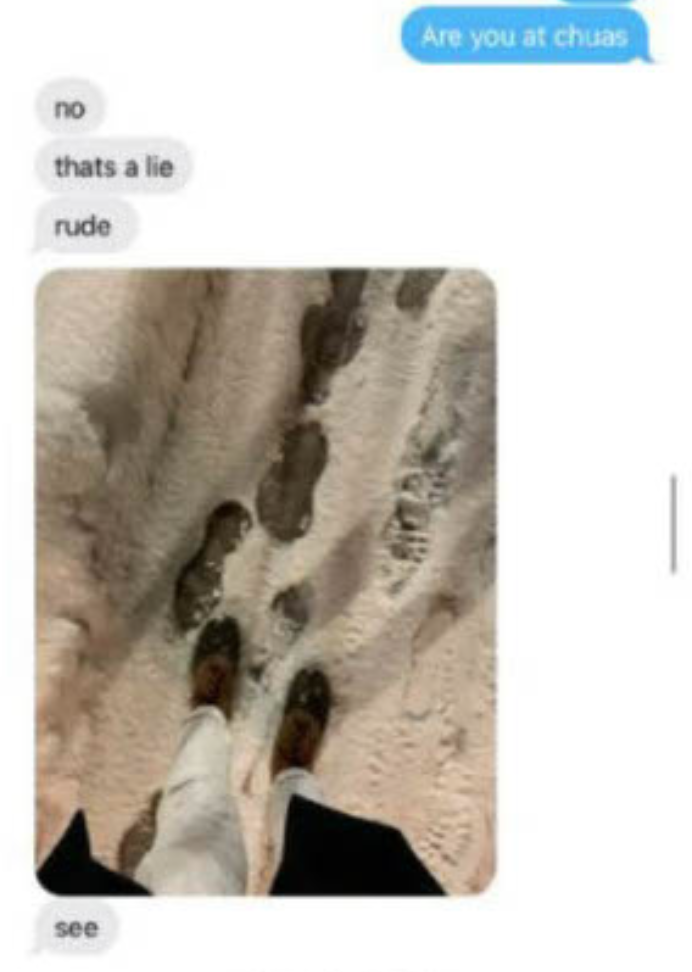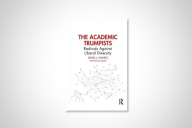You have /5 articles left.
Sign up for a free account or log in.

Amy Chua
Yale University
A new federal lawsuit accuses Yale University’s law school of “blackballing” two students in retaliation for their refusal to implicate their mentor, Amy Chua.
The two unnamed plaintiffs, referred to as Jane Doe and John Doe in the lawsuit, are both Yale law students. They accuse the university and three law school administrators—Heather Gerken, dean; Ellen M. Cosgrove, associate dean; and Yaseen Eldik, director of diversity, equity and inclusion—of threatening into cooperating with a long-standing “vendetta” against Chua, and then eventually warning a professor not to hire them for a prestigious fellowship when they wouldn’t comply.
John G. Balestriere, a lawyer for the plaintiffs, said the case demonstrates that “when individuals have power, they should use it responsibly, in particular over those in their care—and in my opinion no administrator should ever use a student to advance a private goal.”
Yale denies all these allegations, calling them “baseless.”
Chua, the John M. Duff Jr. Professor of Law at Yale and self-proclaimed “tiger mother,” came under scrutiny on campus in 2018 after she was accused of advising female students who wanted to clerk for now-U.S. Supreme Court Justice Brett Kavanaugh that he seemed to prefer attractive candidates who dressed in an “outgoing” way. Chua denied the allegations and was not disciplined by Yale at the time, though Gerken wrote in an email to the law school that the reports of “faculty misconduct” were “of enormous concern.” Around the same time, Chua’s spouse and fellow Yale professor of law, Jed Rubenfeld, was accused of sexually harassing students. He denied the allegations but in 2020 was suspended from teaching until 2022.
Earlier this year, it was reported that Chua had entered into a no-socializing agreement with the law school in 2019 over allegations that she’d held too many boozy dinner parties for students, and that she was now in trouble for breaking that agreement by hosting “secret” pandemic dinner parties at her home. Chua denied both these allegations in a letter to the law school in April, saying that her 2019 agreement with the school had been mischaracterized by the Yale Daily News student newspaper, and that her social interactions with students were about mentorship. “As I wrack my brain to try to imagine what ‘dinner parties’ with students they could possibly be referring to, I can only think of a few possibilities—all of which I not only stand by, but am proud of,” she wrote in that letter. Chua’s reported punishment was not being able to teach small groups.
That dinner party allegations are particularly relevant to the new lawsuit, as the two plaintiffs say that their mostly academic meetings with Chua in February and March sparked the “false” dinner party rumors. They say they faced harassment within the law school over those rumors, but that when Cosgrove and Eldik called to check in on them, the administrators weren’t interested in what the students had to say. According to the lawsuit, Cosgrove and Eldik—allegedly in cahoots with Gerken, the dean—tried to coerce the students into making a formal statement against Chua, with the intention of building their case against her.
Much of the evidence against Yale thus far appears to be the plaintiffs’ word against Yale’s, as the alleged instances of coercion are described as having happened over the phone. But this is not the first time that the Cosgrove and Eldik have been accused of backing a law student into a corner: earlier this fall, a Native American student and member of the Federalist Society said Cosgrove and Eldik wanted him to apologize in writing for publicizing a so-called “trap house” party that offended Black students and allies. The student has said he didn’t know that this term had a racial connotation (he’s said he thought it meant “frat house” or place to party), and that he told Cosgrove and Eldik that he preferred to approach reconciliation in a face-to-face manner.
According to an audio recording that has since been made public, Eldik again encouraged the student to release a statement, saying, “I worry about this lingering over your own reputation as a person, not just here, but when you leave,” and, “The legal community is a small one.” Cosgrove added, “In a situation like this, people start to escalate, and the more it escalates, the more rigid it might get in terms of what the expectations are. Defusing it is always the most effective way to go.”
Gerken, Eldik and Cosgrove did not respond to requests for comment about the lawsuit.
Karen Peart, university spokesperson, said the new lawsuit “is legally and factually baseless, and the university will offer a vigorous defense.”
The Plaintiffs vs. Yale
According to the lawsuit, Jane Doe is a Black student who completed her second year at Yale law. She is currently on a voluntary leave of absence. John Doe, who is Asian American, is in his third year at Yale law. Both met Chua and came to see her as a kind of mentor after taking her international business transactions class. Both students also entered Yale law in 2019, meaning that they weathered law school during the pandemic. They say this put even more pressure on them and their classmates to seek out “non-grade” ways to distinguish themselves from their classmates, as Yale law typically employs a “limited” grading scale and became even more “extreme” during COVID-19.
Without typical grades, one way to distinguish oneself at Yale law is by landing a Coker Fellowship, a coveted teaching assistantship in which select professors chose two assistants each for their teaching of small groups, the lawsuit says. Not only do Coker fellows build close relationships with future colleagues and contacts, but they also get a chance to impress professors who could recommend them to judges as they later apply for federal clerkships.
The plaintiffs say their own aspirations to be Coker fellows were derailed by a series of events that started when they attended Zoom office hours early this year with Chua. The conversations were mostly about academics and career plans, according to the lawsuit, but John Doe also shared with Chua his concerns about “what he felt was a lack of institutional support for students of color,” culminating in his resignation from the Yale Law Journal board.
This resignation received some media attention, causing John Doe to face “significant hostility” within the school, the lawsuit continues. Jane Doe, who was John’s friend and had related concerns, also appealed to Chua, who is Asian American and has faced race-based backlash and online hate in her own right.
In-Person Meetings
Given the sensitive nature of these conversations, the lawsuit says, both Jane Doe and John Doe wished to meet with Chua in person. They say they did so twice in Chua’s home between February and March. Both meetings included only the three people, and “no meals were involved,” the complaint says, alluding to Chua’s previous issues surrounding dinner parties.
Unbeknownst to the two students, at first, these two meetings became the subject of “pernicious law school gossip,” the lawsuit says. An unnamed classmate even compiled a 20-page document about the meetings, which came to be referred to as the “dossier” and called the meetings “secret dinner parties.”
The dossier became news beyond Yale. The gist of the document is that John Doe and Jane Doe repeatedly lied about their off-campus interactions with Chua, including in apparent texts between the creator of the dossier and Jane Doe and John Doe. The document includes pictures of what are supposed to be John Doe’s feet in snow, as alleged evidence of Chua’s parties (see below). It denounces both Jane Doe and John Doe as “deliberately enabling” a “secret atmosphere of favoritism, misogyny and sexual harassment,” and alleges that a third, unnamed first-year law student admitted to having been invited to a “secret” party with Chua and “judges” during the pandemic.
 Both Jane Doe and John Doe became aware of the dossier in April, after it had begun to circulate among students. Later that month, Cosgrove and Eldik contacted both of them to ask about it—namely, to “pressure” them to make formal statements confirming the allegations and lodge their own complaints against Chua, according to the lawsuit.
Both Jane Doe and John Doe became aware of the dossier in April, after it had begun to circulate among students. Later that month, Cosgrove and Eldik contacted both of them to ask about it—namely, to “pressure” them to make formal statements confirming the allegations and lodge their own complaints against Chua, according to the lawsuit.
Jane Doe and John Doe say they repeatedly told Cosgrove and Eldik that there was no truth to the rumors, but that the pair nevertheless called them on a daily basis for a week, insisting that Jane Doe and John Doe had a “moral obligation” to “future generations of students” to complain about Chua.
The students repeatedly asked Cosgrove and Eldik for protection against the dossier, and not Chua, according to the lawsuit. Cosgrove and Eldik allegedly responded that if Jane Doe and John Doe made a formal statement against Chua, they’d finally have “enough” against her.
Pressure on the students mounted, according to the lawsuit. During a joint call including Cosgrove, Eldik and Jane Doe, for instance, Eldik allegedly told Jane Doe that the dossier would likely end up in “every judges’ chambers” [sic], “following [her] even after [she] graduates,” risking her chance of landing a clerkship. In a joint call including Cosgrove, Eldik and John Doe, Eldik and Cosgrove allegedly “strongly suggested” that John Doe should not apply for a clerkship over the summer because of the dossier’s wide publicity.
“It was suggested that, for these reasons, Jane and John should cooperate by making a statement against Professor Chua,” the lawsuit says. Moreover, Cosgrove “directly threatened Jane, claiming that Yale Law School was receiving complaints about her potentially serving as a Coker Fellow due to the dossier, and further suggested that such complaints would be moot if Jane made a statement against Chua.”
Cosgrove allegedly became even more direct, telling Jane Doe that if she accepted a Coker Fellowship with an unnamed professor, Cosgrove or another member of the Yale law administration would approach the professor with allegations that it was part of an “illicit” offer.
John Doe allegedly asked Cosgrove and Eldik to help him deal with false rumors being spread by other students that he may be involved in his own "illicit" offer, but Cosgrove and Eldik “indicated that they were unaware of any complaints or rumors to that effect—despite having threatened Jane with those very same rumors and complaints—and insinuated that they would require concrete proof of this harassment before assisting John.”
Gerken then became personally involved in the pressure campaign against John Doe and Jane Doe, starting with Jane Doe, who was a student in Gerken’s academic clinic and asked for advice about dealing with dossier, the lawsuit says. Gerken allegedly told Jane Doe to “be candid” with Cosgrove and Eldik and any faculty members. Jane Doe allegedly asked why her own candor was at issue, but Gerken and Cosgrove later approached the unnamed professor for whom she wished to be a fellow, “with the intent to induce the professor to decline to extend a fellowship to either Jane or John.”
“The purpose of Gerken and Cosgrove’s approach to the professor was to not only dissuade him from offering a Coker Fellowship to Jane and John, but to convince him that Jane and John were lying about their interactions with Chua, making them untrustworthy and unsuited for employment, despite the professor already employing both Jane and John as his research assistants,” the lawsuit says. “In the course of this attempt, Gerken and Cosgrove brought with them a copy of the dossier that Cosgrove had personally marked up with highlighting and annotations to show where Cosgrove believed that Jane and John were lying. Cosgrove did not try to investigate the specific allegations contained in the dossier with Jane or John, even though they repeatedly informed her that it was full of lies and misrepresentations.”
Given the “false accusations,” neither Jane Doe nor John Doe applied for any judicial clerkships this year, and their “ability to form and maintain relationships with their peers has also been irreparably and permanently stunted.” Jane Doe took a leave of absence. Both have suffered “insomnia, anxiety, nausea, and loss of appetite,” the lawsuit says.
Jane Doe and John Doe formally accuse all defendants of breach of contract—contract here referring to the "handbook," or university policies prohibiting retaliation against students who make harassment complaints. Other counts are promissory estoppel, intentional interference with a prospective business relationship, defamation and unreasonable publicity. False light and intentional infliction of emotional distress are also alleged.
The plaintiffs are seeking trial by jury and compensatory damages of at least $75,000, punitive damages of at least $75,000, attorney’s fees and more.
Chua declined comment on the case.









